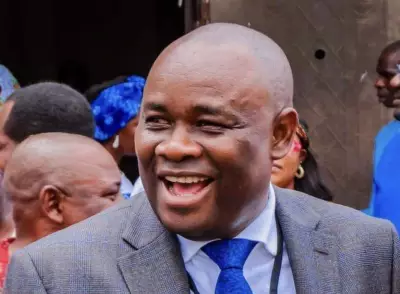
Nigeria stands at a critical crossroads, where the staggering cost of maintaining its political structure threatens to undermine the very development it promises to deliver. The numbers tell a sobering story: while citizens grapple with economic hardships, the machinery of governance consumes resources at an alarming rate.
The Anatomy of Financial Drain
Recent analyses paint a troubling picture of Nigeria's governance expenditure. The current system supports an extensive network of political offices across federal, state, and local levels, each with substantial financial requirements. This includes not just salaries, but numerous allowances, operational costs, and maintenance expenses that collectively create a significant burden on the national treasury.
The situation becomes particularly concerning when comparing governance costs to critical development indicators. While the political class enjoys generous compensation packages, essential services like healthcare, education, and infrastructure continue to suffer from chronic underfunding.
Constitutional Roots of the Problem
The foundation of this financial challenge lies in Nigeria's constitutional framework. The 1999 Constitution establishes a governance structure that many experts consider overly elaborate and financially unsustainable. This has led to calls for constitutional review and systemic reforms that could streamline operations while maintaining effective governance.
Political analysts point to several specific areas where costs could be rationalized without compromising democratic principles or governmental effectiveness. These include reconsidering the number of political appointments, reviewing remuneration packages, and optimizing administrative processes.
The Human Impact
Behind the statistics lie real consequences for ordinary Nigerians. When a disproportionate share of national resources funds the political system, less remains available for:
- Healthcare infrastructure and services
- Educational facilities and teacher compensation
- Road maintenance and transportation networks
- Power supply and energy development
- Social welfare programs for vulnerable populations
Pathways to Reform
Several potential solutions have emerged from ongoing public discourse:
- Constitutional Amendment: Revising the fundamental law to create a more cost-effective governance structure
- Administrative Streamlining: Reducing duplication and optimizing bureaucratic processes
- Performance-Based Compensation: Linking political remuneration to measurable development outcomes
- Enhanced Transparency: Implementing stricter accountability measures for public expenditure
A Call for National Conversation
The debate around governance costs represents more than just financial concern—it touches on the very nature of Nigeria's social contract. As the nation continues its development journey, finding the right balance between effective governance and fiscal responsibility remains crucial.
This conversation requires input from all sectors of society: political leaders, civil society organizations, economic experts, and most importantly, the citizens who ultimately bear the cost of maintaining the current system. The choices made today will determine Nigeria's economic trajectory for generations to come.






